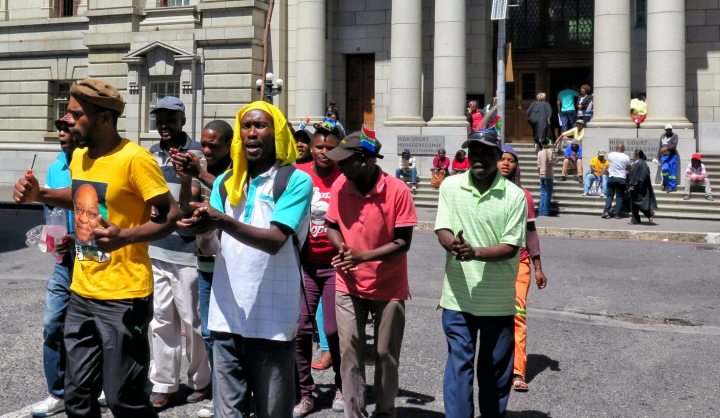South Africa
GroundUp: City of Cape Town asks court to order national government to compensate land owners

A Human Settlements lawyer says that granting the court application by Marikana residents would have “dire and far-reaching consequences”. By Ashleigh Furlong for GROUNDUP.
First published by GroundUp
City of Cape Town’s advocate, Anton Katz, has argued that no order should be made against the city in the Marikana land case. Instead the court should direct the National Department of Human Settlements to compensate the owners of the Marikana informal settlement in Philippi East.
The city presented its arguments in the Western Cape High Court on Monday in a case that will determine whether the state should be ordered to expropriate or purchase private land that 60,000 people have occupied over the past several years. The Socio-Economic Rights Institute (SERI), which is representing most of the occupying residents, asserts that they occupied the land because they had no alternatives.
GroundUp is reporting this important court case that will determine the future of approximately 60,000 people. They have for several years been living on privately owned land in Philippi East. The city has tried several times to remove the residents, who have named their settlement Marikana.
The city submitted its preferred draft order to the court. It calls for the residents to be able to live on the land until alternative land is made available by the National Department of Human Settlements. It states that compensation for the owners should be calculated in terms of the Expropriation Act. If the parties are unable to reach agreement on compensation, then any of the parties should be able to apply to the court to help.
If the city’s order is granted it would effectively be relieved of the responsibility of purchasing or expropriating the land. Instead this would fall on the National Department of Human Settlements.
The city contended that a group of landowners, known as the Stock applicants, are “land speculators”. Advocate Mushahida Adhikari, also for the city, argued that “a degree of risk attaches to that”. This resulted in an annoyed disagreement from the Stock applicant’s counsel who argued that they were not land speculators.
Adhikari also said that “60,000 people on seven pieces of privately owned land is not the kind of emergency that this municipality is required to anticipate”. At this, Judge Chantal Fortuin asked the city under what circumstances would they be able to deal with an emergency situation. Adhikari responded saying that they are not dealing with normal emergencies such as floods. She also said that the city does not have the funds to purchase the property and if it were to purchase it, they would have to secure these funds from another organ of state.
Also on Monday Advocate Karrisha Pillay began presenting her arguments for the National Minister of Human Settlements, the National Minister of Land Affairs, the Provincial Minister of Human Settlements and the Provincial Minister of Community Safety. She said that the matter was “unprecedented” and that the court was being asked to test the matter with “novel and as yet untested mechanisms”.
If the applicants were successful Pillay said that there would be “dire and far- reaching consequences” for the many thousands of people who “currently live in conditions not so far off from those that the occupiers were living in prior to taking occupation of the land”.
“Those persons live in those dire conditions, patiently awaiting state assistance through a methodical and lawful process. It is the rights of those thousands of persons who are also in desperate need of state-assisted housing that cannot be ignored,” she said. Pillay also emphasised that the landowners should have been aware of the risk that they were taking in purchasing their property. She found fault in some of the landowners’ delayed applications for interdicts against the occupiers and their failing to take “all reasonable measures” to protect their land.
As for the city requesting land and money from the province to aid in the relocation of the residents of Marikana, Pillay emphasised that this would require anywhere from 100 to 200 hectares of land for 7,450 households. “It is because it is unable to immediately make available 100 to 200 hectares, for the relocation of these residents that (the national department is) told (it) failed in (its) constitutional obligations,” said Pillay
The matter continues on Wednesday when Pillay will continue with her arguments. DM
Photo: Residents of Marikana informal settlement in Philippi East protest outside the Western Cape High Court on Monday. Photo: Ashleigh Furlong


















 Become an Insider
Become an Insider